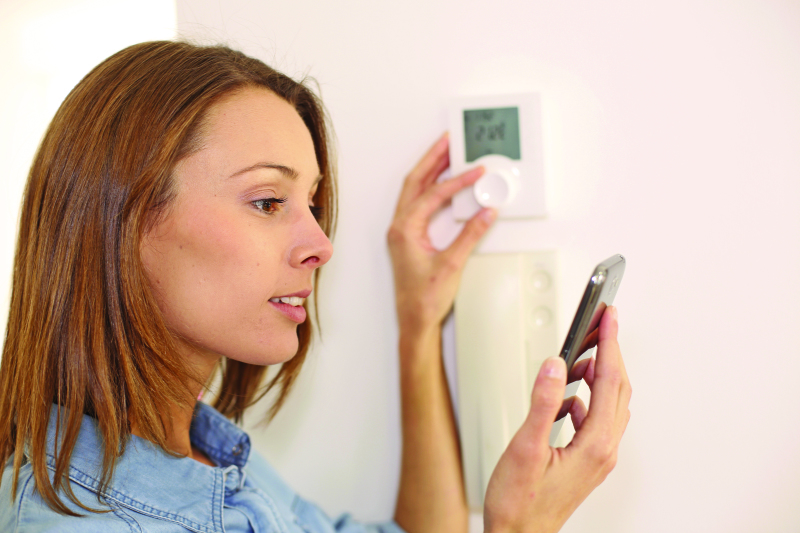What Does REME technology mean for Longview TX?
Feb 3, 2012

Check and replace your air filters
One of the most important and easiest things you can do to insure the effectiveness of your unit is to check and replace your air filters on a regular basis. It is recommended that you change your filters once a month on average. Here are other recommendations based off of your lifestyle:
- Vacation homes/single occupant with no pets or allergies: recommended to change filter every 6–12 months
- Common home without pets: every 90 days
- One dog or cat within an average home: every 60 days
- More than one pet or: 20–45 days
- Individuals suffering with allergies: 20-45 days or more frequent if necessary
Keep your HVAC system free of debris
Spring cleaning anyone? Now is the time to get outdoors and get your hands dirty! Keeping your unit free from debris such as sticks, leaves, dirt, or any other foriegn objects ensures the longevity and effectiveness of your AC unit. It’s recommended that you clear a space of at least 2 feet around your unit. This allows for the optimal level of air to pass through your system.
Throw on a pair of gloves and break out the water hose; we want to increase maximum airflow.
Clean your registers
A register is how you control where the air will flow into a room. Cleaning these on a regular basis helps keep dust and dander out of your AC system as well as your duct work.
Help out your humidifier
Give your system a rest during the summer months by turning off your furnace humidifier’s water supply. When the cooler months begin approaching, replace your humidifier pad, set the humidity between 35% to 45%, then turn the water supply to the furnace humidifier back on.
If you need help with any part of this process, our trained HVAC technicians can address the particulars of your specific AC system. If you find that the air in your home gets too humid, you may want to consider a dehumidifier installation to help.
Keep an ear open for unusual noises
One of the best ways to keep up with your AC unit is by keeping a listening ear open. Often times than not; that is one of the first signs that your AC unit may be struggling. There are multiple reasons that your unit could be making noise; below are the most common and what they could mean:
- Humming: Could be loose parts, such as fan blades, bolts, pipes, or wiring that are rubbing together. Elongated lack of care will cause costly AC system repairs.
- Rattling: Most of the time it is caused by debris in the outside unit.
- Hissing: Usually means that air is escaping from the system somewhere and that your ducts are leaking.
- Loud whistles or “screaming”: Either this is cause for an excessive amount of internal pressure; or you have a refrigerant leak.
- Clicking: RIP to your capacitor. A clicking noise within the inside cabinet of your AC system indicates that your capacitor is failing.
Your best bet when hearing noises such as these is to turn your system off – and give us a call. Our trusted HVAC technicians will come out and inspect any possible hazards and get you back up and running in the cool AC.
Utilize fans to give your system a rest
Who doesn’t love to save money on their energy bills? By utilizing your ceiling fans and portable fans you can decrease your energy consumption hence lowering your bill. Using these methods help to bring the temperature in your home down quickly.
On day’s that are cooler, we encourage you to open your windows and turn on your fans to help circulate the cool air through your home to keep it comfortable. Doing this not only saves money on your next bill, but helps in the longevity of your unit. And on day’s that are warmer, or too hot to do this, it is recommended by the U.S. Department of Energy to set your thermostat to 78 degrees to help keep your electric bill low during the summer months.
Keep heat producing appliances away from your thermostat
If your thermostat is located near an unusually high temperature region of the home, it can’t properly gauge your home’s temperature. This causes your system to work harder than it really needs to. Keep your thermostat away from heat sources such as your kitchen appliances, lights, or even a window.
Our certified HVAC technicians know this – and therefore won’t install a thermostat in a heat prone area of your home. So if you find that your system is older and in a bad spot, it would probably be worth the time and effort to fix the problem in lieu of your comfort, your system life, and your wallet.
Know when to call a professional
Whether you are just needing your seasonal tune up or you have an issue bigger than you can fix, JD’s AC certified and caring HVAC technicians are here to help you. If you have any questions or have concerns about sounds, efficiency or age of your unit – now is the time to give us a call.
